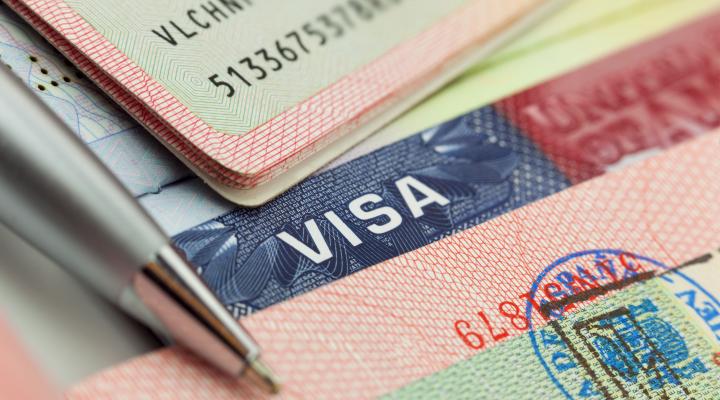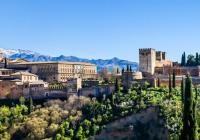
If you’ve always dreamt of moving to Spain, or spending an extended period of time in the country and you've been searching for a property on the Costa Del Sol, then Brexit is likely to have felt like a major blow. It’s certainly true that since January 1, 2021, moving to Spain is a much harder task than it used to be. But it’s not all doom and gloom: a non-lucrative visa is one of the ways UK nationals wanting to retire in Spain or live in Spain without working can do so, if they have enough financial means. Here’s everything you need to know about securing a non-lucrative visa:
The Impact of Brexit
As a direct result of Brexit, Britons can now spend only 90 out of each 180-day period in Spain (and elsewhere in Europe). Brexit also means that it will be harder for Brits to work in Spain, either by securing a job or setting themselves up as self-employed. What’s more, the financial requirements for residency are now much more demanding than they ever were before. However, if you are able to show that you have the financial means to care for both yourself and your family for the duration of your stay in Spain, you may well find that a non-lucrative visa is the solution to enabling you to stay in Spain on a long-term basis.
What is a Non-Lucrative Visa?
A non-lucrative visa is only the right option for you if haven’t found a job in Spain, and don’t intend to. You should also have no interest in studying, investing or conducting business whilst you’re living in the country. If you’re able to obtain residency because you have Spanish family roots or a partner that is from the EU then this is also not the right option for you. But if you hope to obtain residency through financial means then a non-lucrative visa could be the best way to do so.
In short, a non-lucrative visa allows non-EU foreigners to stay in Spain for a period of more than 90 days without working or carrying out professional activities. In order to be accepted for this type of visa, you must be able to demonstrate that you have the financial means to support yourself. In Spain this type of visa is known as a “visado de residencia no lucrativa”. It is best known as a retirement visa because it is favoured by those hoping to retire in Spain.
Spain’s non-lucrative residency permit is a temporary residence visa which initially only lasts for one year. You can renew this twice, with each renewal lasting for a period of two years. At this point, you will have been residing in Spain for five years and will therefore be eligible to apply for long-term residency: a visa which lasts for another five years. After ten years of residence in Spain, British citizens can obtain Spanish citizenship, although they will technically have to renounce their British nationality in the process.
How Much Does it Cost to Secure a Non-Lucrative Visa?
The term ‘sufficient financial means’ is a very vague one, making it hard to quantify exactly how much you’ll need to be eligible for a non-lucrative visa. What’s more, this figure varies from region to region: even the Spanish consulates and embassies offer different figures.
Spain’s Royal Decree states that sufficient financial means “will not exceed the level of resources by which social subsidies are granted to Spaniards or the amount of the minimum Social Security pension”. This decree refers to the IPREM, an indicator that in 2021 stands at €564.90 (£488.34 with the current exchange rate) per month.
The standard financial requirement for non-lucrative visa applicants is 400 percent of the IPREM: €2,259 (£1,952) per month. So for a UK national wanting to apply for the non-lucrative residency permit for Spain for the first time in 2021 (it lasts one year),you would need to demonstrate that you had access to €27,115 (£23,436) in order to support yourself for the year. If you were moving with your family, you would need an extra 100 percent of the IPREM, or €6,778 (£5,859) per family member. To break that down more clearly:
- A couple would need €33,894 (£29,300) annually in savings or a monthly income through investments, pensions or other assets of €2,824 (£2,441) a month.
- A family of three would need €40,672 (£35,156)
- A family of four would need €47,450 (£41,015)
If you’re renewing your non-lucrative visa for the first and second time, bear in mind that you will have to prove you have 800 percent of the IPREM as the renewed residence permit is valid for two years (doubling the amount of your first application). For an individual that is €54,230 (£46,869) that they can prove they’ll have available.
Whilst local inconsistencies and changing exchange rates means these figures aren’t always 100% accurate, it’s a good rule of thumb to help you calculate whether securing a non-lucrative visa is a viable option for you.
How Do I Prove My Income?
Like everything else when it comes to Spanish bureaucracy the documents you need to show your income can vary. But many consulates will ask for recent bank account certificate, statements from the past six months and on occasions credit cards or property values can also be presented. The higher an income you can demonstrate the better, and remember it’s always better to have too much paperwork than not enough: take everything you have that you feel may be useful in demonstrating you have sufficient means to live in Spain without additional financial support.
Bear in mind that you will also need to take out comprehensive private health insurance when you arrive in Spain, so factor the cost of this into any of your forward financial planning. This must be with a Spanish medical insurance company, be at least one year long and offer full coverage with no co-payments. You should also speak with a tax adviser before you leave the UK, to ensure that you fully understand any tax implications of living in Spain before they affect you.
Have you always dreamt of retiring to Spain? Whether you’re looking for golden mile properties in Marbella or bargain property in Andalucia, our local property experts are perfectly placed to turn your dreams into a reality. Why not get in touch to find out more about how we can help you.

 English
English Español
Español Deutsch
Deutsch Français
Français Svenska
Svenska Nederlands
Nederlands Italiano
Italiano Norsk
Norsk Русский
Русский

































